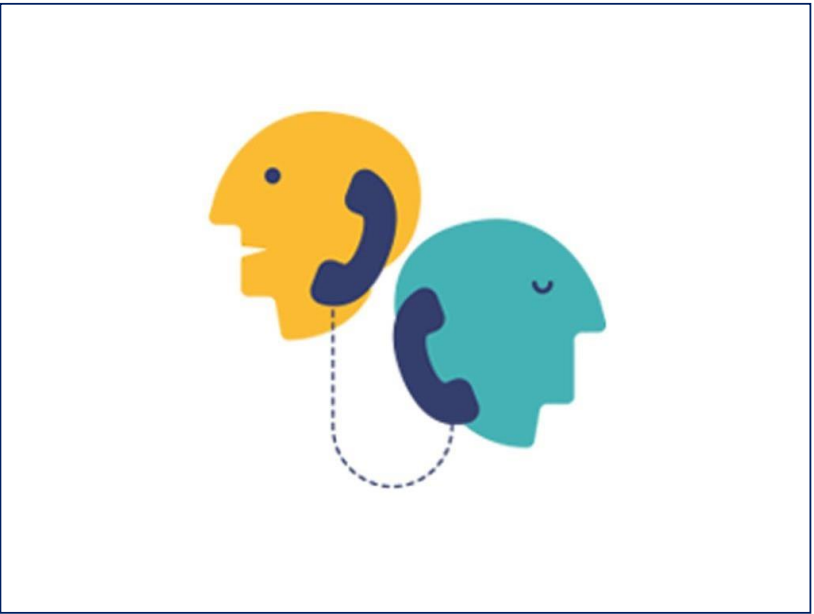
Background Context:
The increase in the burden of psycho-social and mental health concerns in the country is not backed by a proportional increase in services available to address them. Global Health Workforce Alliance of the World Health Organization (WHO) suggests that most countries require about 23 skilled health workers per 10,000 people to carry out essential health interventions. The number of mental health professionals in India can only meet 29 per cent of the country’s mental health needs. Given this trend of increasing demand for service providers in the country, there is a growing popularity of telephonic helplines that provide counselling to callers reporting a variety of psycho-social and mental health concerns.
The iCALL Psychosocial Helpline is a field action project of The School for Human Ecology (SHE) at the Tata Institute of Social Sciences (TISS) in 2012. The project focused on establishing a centralized nodal professional counselling service to provide mental health support to the diverse population of the country. The iCALL Psychosocial Helpline is a pan India technology-assisted counselling service which is run by trained professionals with the objective of providing counselling services to individuals in emotional and psychological distress. Apart from service provision, iCALL is actively involved in research, capacity building, outreach, awareness creation and developing protocols for various government and non-government agencies, academic institutions etc. TISS collaborated with Devsol Research Consultant Pvt. Ltd. (DS) to assess the effectiveness of the iCALL telephonic helpline. The study also helped in documenting the satisfaction level of the callers, and perspectives of the counsellors and the program team members on the service provisioning of the telephonic helpline. This report summarizes the findings of the assessment study outlining the objectives and methodology, the insights from the responses received from the callers, counsellors and the program team members. The report ends with recommendations for the service provisioning of iCALL based on the responses received.
Koraput (Odisha)
Client
Tata Institute of Social Sciences, Mumbai
Location
Pan India
Objectives of the assessment study
The following were the objectives of the assessment study:
- To document satisfaction level of the callers who had called the helpline
- To assess the effectiveness of the helpline’s service provisioning strategy
Findings of the assessment study
- More male caller-respondents participated in both qualitative and quantitative surveys.
- The participation rate was high among young adults and old adults (34 years or less of age). More than 80% of the caller respondents for both the qualitative and the quantitative survey belonged to the above age group.
- Participation was higher amongst the caller-respondents who were graduates and post-graduates. More than 65.0% of the caller-respondents for both the qualitative and the quantitative survey were graduates and post graduates.
- Participation in the quantitative survey was higher amongst the caller-respondents who were students. More caller-respondents who were engaged full-time participated in the qualitative survey.
- Participation was higher amongst the caller-respondents who were single for both qualitative and the quantitative surveys.
- More than 10% of the caller-respondents participated from each of the states of Maharashtra, Uttar Pradesh and West Bengal in the quantitative interactions. For the qualitative interactions more than 30% of the caller-respondents were from the three states of Delhi, Maharashtra and West Bengal.
- Participation was higher amongst the caller-respondents who resided in the urban parts of the different states.
- Participation of the caller-respondents from other backward castes (OBC) and scheduled castes (SC) were also noticed.
- Caller respondents also participated from the LGBT community.
- Participation was also seen from caller-respondents who lived with different types of disabilities.
Recommendations for improvement:
- Social media platforms emerged to be the most popular source of information about iCALL for the caller-respondents and the counsellors.
- Caller-respondents have suggested improvements in the outreach materials about iCALL in the different social media platforms. The suggestions include sharing the details of the services provided by iCALL especially in regional languages, information about some special support for those who felt suicidal, use of infographics, availability of the helpline 24*7, sharing videos to create awareness about the general psycho-social and mental health helplines and how to keep oneself safe from those amongst others.
- Though many of the caller-respondents could not recall the year when they connected with iCALL for the first time, a majority of the participants connected with iCALL in 2022 and 2023.
- Majority of the caller-respondents mentioned that after getting connected with the iCALL helpline, the wait-time was moderate to long before they got to interact with the counsellors explaining their concern.
- Though the caller-respondents mentioned more than one reason for connecting with the iCALL helpline, emotional distress emerged to be a major reason.
- The caller-respondents were very satisfied with aspects like their comfort in discussing their concern with the counsellors and more than 70.0% of them found the counsellors to be empathetic.
- 86.5% of the caller-respondents found the counsellors to be non-judgmental and more than 71.0% were satisfied with the time allocated to them for sharing their concerns.
- However, the caller-respondents expected some more information sharing about their concerns from the counsellors and were moderately satisfied with the referrals provided to them by the counsellors.
- Respondent callers mentioned that their emotional wellbeing had improved after connecting with iCALL and they were able to sustain a good quality of life.
- The iCALL team can consider updating their social media handles with information to increase the knowledge and awareness of the callers on different psycho-social and mental health concerns and coping mechanisms for each of them. A dedicated team could be deployed for the purpose. Along with this, there can be regular updates on the range of services provided by them.
- The team needs to consider options for onboarding more counsellors to increase the diversity in counselling language. This will help caller-respondents communicate their concerns in the local vernacular language on one hand and also increase the outreach of the telephonic helpline. The iCALL team can collaborate with the placement cell of TISS, or even use their social media handles to disseminate information about vacancies for counsellors.
- The iCALL team needs to consider the possibility of increasing the frequency of capacity building sessions for the counsellors and also increase the number of mock calls so that they get exposed to a greater variety of concerns and modalities to address those.
- The iCALL team needs to consider technical issues so that the caller-respondents have to wait for smaller durations of time. Also, they can set up a management information system (MIS) in collaboration with some third-party agency to follow up with the caller-respondents at a regular frequency. This on one hand will facilitate a follow up on the wellbeing of the caller-respondents and on the other, gather feedback from them to further strengthen and improve the service provisioning of iCALL.
